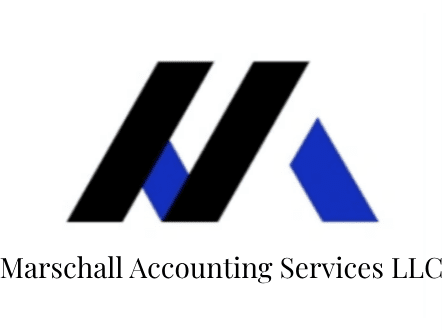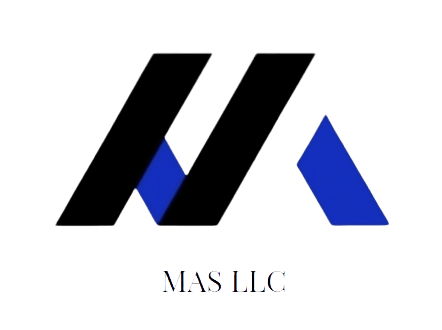Article: Business Tax Returns—Preparing for 2019 Filings

Jessica I. Marschall, CEO, Marschall Accounting Services LLC
January 5th, 2019
As CPAs, we have amassed troves of horror stories from taxpayers who have chosen to prepare their own business returns on a platform such as TurboTax.
In some ways, we should appreciate the do-it-yourself platforms that allow taxpayers to royally screw up their business taxes because when we finally contract with those clients, we have to charge thousands to redo, amend, spend hours on the phone with the IRS assisting return reviews and helping the client go back into files tucked away from years ago to retrieve substantiation for their income and expenses. It is a nightmare. I am of the mind that taxpayers should be well-informed as to the dangers of preparing complex tax returns on “user-friendly” tax platforms like Turbo Tax or Tax Act. I am also of the mind that if a client has a simple tax situation with only w-2 income and is taking the standard deduction, they should not hire me. Those are the types of returns where TurboTax is the affordable and easy alternative. We all must stay in our lane. I do not consult on engineering projects and engineers should not produce their own complex business tax returns.
With that warning/introduction out of the way, let us dive into preparing for business tax returns.
1040 Schedule C
—Sole Proprietors, and Single-Member LLCs (Disregarded Entities)
The schedule C is the form used by individuals who are Sole Proprietors. In the great United States of America, anyone can start a business without filing any official paperwork and report that income and expenses on this form. However, businesses running as Sole Proprietorships will quickly realize there are local filings due for tangible business property taxes and if the owner pays an employee or a contractor, they must file important year-end forms W-2 and 1099s. Most importantly, Sole Proprietorships afford the taxpayer no protection from dividing their business from personal interests—personal assets can be at stake should someone file suit against the company.
A much better option is to become a single-member LLC, technically referred to as a Disregarded Entity. This is easily done on your state corporation’s webpage and needs to be followed by obtaining a federal Employer Identification Number from the IRS website. When in doubt, ask your CPA or attorney to help with the formation and EIN application. This enables the taxpayer to protect their personal assets from business dealings.
As a small business owner, remember to collect a legible W-9 for your independent contractors and a W-4 from your employees. Forms 1099 for contractors and W-2s for employees must be filed by January 31st, 2020. Substantial penalties arise when these are filed late. Best-practice is to not make a single payment to contractors until you have a W-9 on file.
Please thoroughly review the Schedule C Expense section:
Ensure your business expenses are broken down into these categories. This is simplified when your accounting software has similar expense accounts included in the Chart of Accounts. Here is a short list of the most common errors I see on Schedule C expenses:
1. Uniform expenses are deductible, wardrobe expenses are not. A uniform is something that must be worn in the regular course of a business like an auto-mechanic, food-service employee, etc. Power-suits and high heels are not uniforms and are not deductible. Dry-cleaning expenses are not deductible either.
2. Car expenses—you must choose between actual expenses (gas, repairs, insurance, etc.) and the business mileage rate—$.58/mile for 2019. A mileage log must be kept if taking the standard mileage rate. Using either method requires close record keeping and the savvy taxpayer should keep records of both and determine the method with the greater deduction. Utilizing accounting software and an online mileage log makes this a piece of cake.
3. Home Office Deduction—Many taxpayers are afraid to take this because they have been warned it will trigger an audit. The deduction is there for a reason. If you legitimately use a portion of your home only as your home office, take the deduction. If you also use the room for exercising, sleeping, a child’s playroom and the venue for family movie nights, a home office it is not. You can either take the simplified method of $5/square foot or add up actual expenses (mortgage, real estate taxes, repairs and maintenance to the office, etc.) Please see the table below for comparisons. Of note, the simplified method may not be carried forward should your business experience a loss while they actual method can.
4. Ensure you properly classify expenses. Do not bunch them all under “other” when they fit more appropriately into other categories.
5. Entertainment expenses are gone under the Tax Cuts and Jobs Act. No more writing off box seats for you and your clients.
6. Meal expenses better be legitimate. The IRS watches these closely. Keep a written record (within your accounting software) including the purpose of each meal, who attended and what was discussed. In a family-owned business, a meal out with husband and wife, even when discussing business, should not be deducted. Be incredibly conservative with this. Should a return come under audit and the IRS find any inconsistencies, they can assume many other meal expenses were illegitimate, as well with huge fines and penalties. However, if you put on a holiday party for the office and it is expected that everyone must attend, the expense of the party is fully deductible.
7. Do not comingle business and personal funds. You must have a separate bank account and credit card for your business.
8. Counties and cities tax Tangible Business Property at lower thresholds than the IRS requires for capitalizing assets—or putting them on your balance sheet and depreciating them. I have my clients include an expense account called “Expensed Assets” so the yearly list of tangible business property can be easily updated and does not involve a deep dive through various expense accounts.
9. Watch gifts to employees—many are taxable. Just because the gift is in the form of a gift certificate does not mean that it is not taxable. Read up on this: https://www.irs.gov/government-entities/federal-state-local-governments/de-minimis-fringe-benefits
10. Make sure your Independent Contractors are not Employees in a W-9 disguise. The IRS is really cracking down on this. If it looks like a duck, quacks like a duck, walks like a duck…or in technical terms, review Topic 762 from the IRS: https://www.irs.gov/taxtopics/tc762
Some other considerations for small business/Schedule C filers: ensure your bookkeeper gets your year-end books closed in a timely manner giving your CPA as much time as possible to prepare your return.
It is of critical importance that you know whether you are a cash basis or accrual basis taxpayer. You cannot change back and forth and a change in accounting method requires the filing of form 3115: https://www.irs.gov/forms-pubs/about-form-3115 Do your homework and understand the difference between cash vs. accrual. The basics are:
Cash
Income recognized when cash received and expenses recognized when cash paid.
Accrual
Income recognized when it becomes due (invoice sent) and expenses recognized when they are due (bill received.)
Please, pay your quarterly federal and state estimated taxes! Remember small businesses have self-employment tax. Unlike W-2 employees where the employer picks up half of payroll taxes, self-employed individuals pay both portions. One-half of these taxes is deducted for AGI but it does not result in a dollar-for-dollar reduction. Our federal and state tax systems are pay-as-you-go. You may get away with not paying estimated and paying the penalty for a few years but this is not wise. Also, do not overpay your estimated or over-withhold on your W-2 income. Receiving a refund at year-end is not a good thing. This means you lent your money to the federal and state government without receiving any interest. It is much better to come close to zero or owe a little.
The Tax Cuts and Job Act (TCJA) provides for a QBI deduction for small businesses. This is incredibly complex when taxpayers exceed earnings thresholds $210,700 for single and $421,400 married. Before you hit those thresholds a taxpayer gets to deduct 20% of their Qualified Business Income like an additional standard or itemized deduction. Again, this law—199A is incredibly complex when you exceed these thresholds and is not available for certain industries—doctors, attorneys, CPAs (thank you very much Congress) and you must conference closely with your CPA with regard to this law. Here is a good link to more than you would ever want to know regarding the 199A deduction: https://www.irs.gov/newsroom/tax-cuts-and-jobs-act-provision-11011-section-199a-qualified-business-income-deduction-faqs
Form 1065 and 1120S
Partnerships and S-Corporations
Other pass-through business entities include Partnerships. Tax form 1065 for partnerships is due 3/15/20. LLCs with more than one member are default partnerships. Form 1065 kicks out a form K-1 for each partner, which then flows through to the individual tax return on Schedule E.
S-Corporations are “baby corporations.” S-Corporations have elected to have different tax treatment than LLCs or partnerships and file form 1120S by 3/15/20. These returns are more complex as is the underlying accounting. These forms also kick out a K-1 which flows to the 1040 Schedule E.
Corporations file form 1120 and these are not due until 4/15/20 when individual returns are due. Remember that the TCJA has loosened the rules on cash v. accrual accounting for corporations allowing corporations with less than $25M in revenue in a rolling three-year period to use the cash method. Here is a great article from the Journal of Accountancy on these changes: https://www.journalofaccountancy.com/issues/2019/jan/small-business-tax-accounting-methods.html
You cannot simply jump ship from a pass-through to a C-Corp unless you are good and sure you want that change. You cannot switch back for five years unless you have a compelling reason and that compelling reason may not be to pay less taxes.
Assets and Depreciation
Applies to all businesses
Another critical area to discuss with your CPA is your assets and the depreciation method you choose. The TCJA allows for Bonus Depreciation and the limit for Section 179 deductions has a higher ceiling. Limits for Listed Assets (typically those that can be used for both business and personal uses—computers, vehicles, etc.) have changed. Remember, you cannot amend returns to change depreciation methods. Make sure you discuss, in detail, with your CPA the most beneficial treatment of your business assets.
Final Take-aways
If I could provide the most critical guidance for small business clients that I have gleaned from my 19 years of experience they could be summed up into the following:
1. You absolutely must use accounting software and know how to use it correctly or hire a bookkeeper or CPA to reconcile and review each month. Should your return go to audit this will change months of works into days. You can also upload receipts right into the software.
2. Contract with your CPA on a monthly basis so they can advise you as to best-practices for tax treatment and act as advisors throughout the year. Sometimes, our clients show us evidence of 12 months of decisions that have already been made and we have no way to change the past. It is much better to keep us involved throughout the year.
3. Ensure you know the small business tax laws and ensure your CPA does, as well. Your CPA must be responsive and available. Everyone is busy. That is no excuse not to respond to client’s requests in a timely manner. If you are being ignored or brushed-off, time to find someone new.
Marschall Accounting Services, LLC is happy to provide a free consultation to determine if we are a good fit for your tax needs. Please visit our website: www.MarschallAccountingServices.com
or email Jessica at [email protected]




